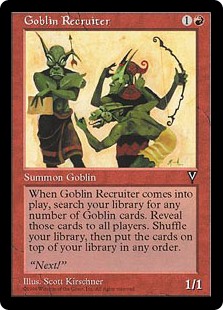vim include/llvm/* , quelques pépites glanées en maintenant LLVM
Serge « sans paille » Guelton
Compiler Engineer / Wood Craft Lover / RedHat employee
CppFrug — 29 avril 2021

llvm::is_trivially_copy_constructible
template <typename T, bool = is_trivially_copy_constructible<T>::value> class SmallVectorTemplateBase; template <typename T, bool = is_trivially_copy_constructible<T>::value> class SmallVectorTemplateBase<T, true> { void symbol0(); }; template <typename T, bool = is_trivially_copy_constructible<T>::value> class SmallVectorTemplateBase<T, false> { void symbol1(); };
template<class T> struct test { #ifdef __clang__ static constexpr bool value = true; #else static constexpr bool value = false; #endif }; template<class T,bool=test<T>::value> struct A { T value; }; template<class T> struct A<T, false> { }; int foo(A<int>) { return 0; }
llvm::is_move_assignable
template <typename T> struct is_move_assignable { template<class F> static auto get(F*) -> decltype(std::declval<F &>() = std::declval<F &&>(), std::true_type{}); static std::false_type get(...); static constexpr bool value = decltype(get((T*)nullptr))::value; }; static constexpr bool has_trivial_move_assign = is_move_assignable<detail::trivial_helper<T>>::value;
L'union fait la force
template<class T> union trivial_helper { T t; };
Quoting the standard:
If a union contains a non-static data member with a non-trivial special member function (copy/move constructor, copy/move assignment, or destructor), that function is deleted by default in the union and needs to be defined explicitly by the programmer.
llvm::BitVector
Gestion de la mémoire à la main <3 :
~BitVector() { std::free(Bits.data()); }
Optimisation des réallocations :
void clear() { Size = 0; }
llvm::BitVector
template <class F, class... ArgTys> static BitVector &apply(F &&f, BitVector &Out, BitVector const &Arg, ArgTys const &...Args) { assert(llvm::all_of( std::initializer_list<unsigned>{Args.size()...}, [&Arg](auto const &BV) { return Arg.size() == BV; }) && "consistent sizes"); Out.resize(Arg.size()); for (size_t i = 0, e = Out.NumBitWords(Arg.size()); i != e; ++i) Out.Bits[i] = f(Arg.Bits[i], Args.Bits[i]...); Out.clear_unused_bits(); return Out; }
clang::LineOffsetMapping::get
LineOffsetMapping LineOffsetMapping::get(llvm::MemoryBufferRef Buffer, llvm::BumpPtrAllocator &Alloc);
Implémentation standard:
while (I < BufLen) { if (Buf[I] == '\n') { LineOffsets.push_back(I + 1); } else if (Buf[I] == '\r') { // If this is \r\n, skip both characters. if (I + 1 < BufLen && Buf[I + 1] == '\n') ++I; LineOffsets.push_back(I + 1); } ++I; }
PGO style
while (I < BufLen) { if (__builtin_expect((Buf[I] - '\n') <= ('\r' - '\n'), 0)) { if (Buf[I] == '\n') { LineOffsets.push_back(I + 1); } else if (Buf[I] == '\r') { // If this is \r\n, skip both characters. if (I + 1 < BufLen && Buf[I + 1] == '\n') ++I; LineOffsets.push_back(I + 1); } } ++I; }
SSE style
const auto LFs = VBROADCAST('\n'); const auto CRs = VBROADCAST('\r'); while (I + sizeof(LFs) + 1 < BufLen) { auto Chunk1 = VLOAD(Buf + I); auto Cmp1 = VOR(VEQ(Chunk1, LFs), VEQ(Chunk1, CRs)); unsigned Mask = VMOVEMASK(Cmp1) ; if(Mask) { unsigned N = __builtin_ctz(Mask); I += N; Mask >>= N; I += ((Buf[I] == '\r') && (Buf[I + 1] == '\n'))? 2 : 1; LineOffsets.push_back(I); } else I += sizeof(LFs); }
BitWord style
Part0 :
template <class T> static constexpr inline T likelyhasbetween(T x, unsigned char m, unsigned char n) { // see http://graphics.stanford.edu/~seander/bithacks.html#HasBetweenInWord return (((x) - ~0UL / 255 * (n)) & ~(x) & ((x) & ~0UL / 255 * 127) + ~0UL / 255 * (127 - (m))) & ~0UL / 255 * 128; }
BitWord style
Part1 :
do { memcpy(&Word, Buf + I, sizeof(Word)); #if defined(BYTE_ORDER) && defined(BIG_ENDIAN) && BYTE_ORDER == BIG_ENDIAN Word = __builtin_bswap64(Word); #endif // no new line => jump over sizeof(Word) bytes. auto Mask = likelyhasbetween(Word, '\n' - 1, '\r'+1 ); if (!Mask) { I += sizeof(Word); continue; }
BitWord style
Part2 :
[...] unsigned N = __builtin_ctzl(Mask) - 7; Word >>= N; I += N / 8 + 1; unsigned char Byte = Word; if (Byte == '\n') { LineOffsets.push_back(I); } else if (Byte == '\r') { // If this is \r\n, skip both characters. if (Buf[I] == '\n') ++I; LineOffsets.push_back(I); } } while (I < BufLen - sizeof(Word) - 1);
encodeBase64
std::string encodeBase64(const llvm::SmallVectorImpl<char> &Bytes)
Dont l'implem contient :
[...] uint32_t X = (Bytes[I] << 16) + (Bytes[I + 1] << 8) + Bytes[I + 2];
columnWidthUTF8
int columnWidthUTF8(StringRef Text) { unsigned ColumnWidth = 0; unsigned Length; for (size_t i = 0, e = Text.size(); i < e; i += Length) { Length = getNumBytesForUTF8(Text[i]); if (Length <= 0 || i + Length > Text.size()) return ErrorInvalidUTF8; UTF32 buf[1]; const UTF8 *Start = reinterpret_cast<const UTF8 *>(Text.data() + i); UTF32 *Target = &buf[0]; if (conversionOK != ConvertUTF8toUTF32(&Start, Start + Length, &Target, Target + 1, strictConversion)) return ErrorInvalidUTF8; int Width = charWidth(buf[0]); if (Width < 0) return ErrorNonPrintableCharacter; ColumnWidth += Width; } return ColumnWidth; }
columnWidthUTF8
// fast path for ASCII characters if (Length == 1) { if (!isprintableascii(Text[i])) return ErrorNonPrintableCharacter; ColumnWidth += 1; continue; }
That's all folks
